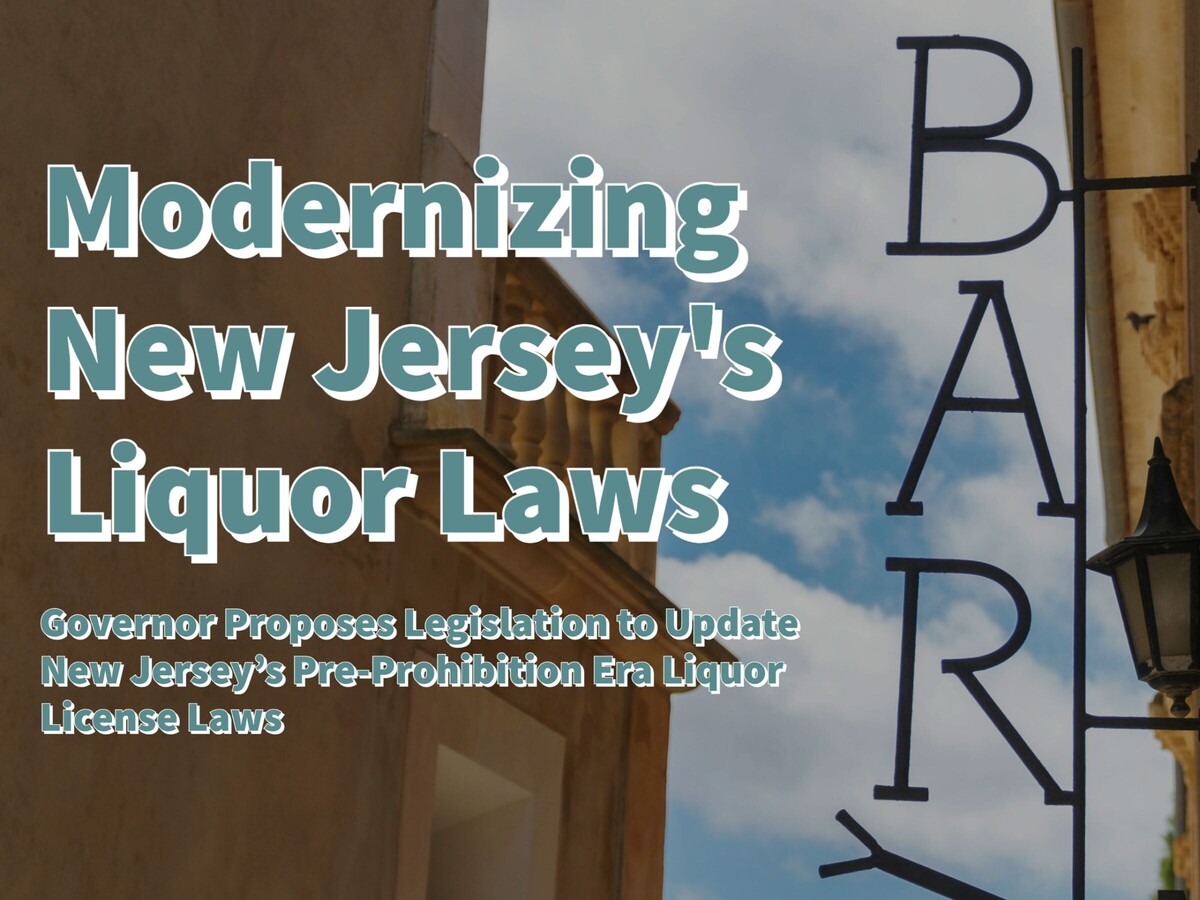Image


New Jersey Governor Phil Murphy held a roundtable discussion on Tuesday to gather community input as he prepares to introduce a new legislative proposal that aims to reform and modernize the state's antiquated liquor license laws (laws put in place immediately following prohibition).
The discussion took place at Pru Thai, a restaurant in Clinton, where the Governor was joined by officials and community members who voiced their support and recommendations for the new liquor licensing framework that has the potential to generate massive economic opportunities for small businesses and communities statewide.
The roundtable was attended by Senator Gordon Johnson and Assemblyman Raj Mukherji, who have been leading voices in the Legislature on the need for liquor license reform, Clinton Mayor Janice Kovach, Korn Wongsarochana and his wife Chayanee, owners of Pru Thai, Ehren Ryan, Owner and Head Chef of Common Lot restaurant in Millburn, and Daniel Rios, Co-Owner of Sabor Y Arte restaurant in Elizabeth, who possesses a liquor license but supports creating fair and affordable access for all.
Governor Murphy first proposed a comprehensive statewide strategy to modernize New Jersey’s consumption liquor license laws during his State of the State Address last month. Tuesday's event helped inform final decisions as the Governor prepares to introduce a legislative proposal to modernize a liquor licensing process that hasn't been updated since 1933.
New Jersey’s current liquor license laws only allow local governments to issue one consumption liquor license for every 3,000 residents, limiting the supply of available licenses and driving up prices significantly. As a result, prospective buyers are forced to either purchase licenses from existing holders on a secondary market – sometimes as high as seven figures – or pay a high price to a municipality through an auction.
According to 2019 U.S. Census figures and data from the NJ Division of Alcoholic Beverage Control, New Jersey trails New York in the number of restaurants per capita and both New York and Pennsylvania in the number of liquor licenses per capita. Additionally, New York and Pennsylvania have more than three times as many breweries and distilleries as New Jersey and generate billions more in economic impact.
The New Jersey Economic Development Authority estimates that reforming New Jersey’s liquor license system could generate up to $10 billion in new economic activity over 10 years and create upwards of 10,000 jobs annually.
Governor Murphy’s proposal would increase the availability of Retail Consumption Licenses over five years through the following framework:
Phase out the population cap: The existing population cap for plenary retail consumption licenses and seasonal retail consumption licenses would be reduced each year by 10% for five years until it is completely removed. After the phase-out, licenses will be issued as needed and without a cap, subject to local control.
Local review: New licenses would continue to follow the same local review process that they do today, maintaining municipal control. New licenses would be issued by the local authority with supervision by the State Division of Alcohol Beverage Control (ABC) upon municipal application and approval. Each local authority will be able to determine and regulate the number and type of licenses to be issued upon reduction and removal of the existing population cap.
Establish administrative prices and fees for new licenses: New licenses would be issued at progressive prices and associated fees based on business size, which will be measured by the number of employees. These prices will be reviewed and set by ABC annually. In addition, municipalities would maintain the right to assess local fees upon the issuance of a new license with a cap on the annual renewal fee – not to exceed $2,500 – in order to maintain affordability.
Address breweries, distilleries, and wineries: This proposal would also expand the rights of holders of certain brewery, cidery and meadery, distillery, and winery licenses, many of which are restricted from serving.